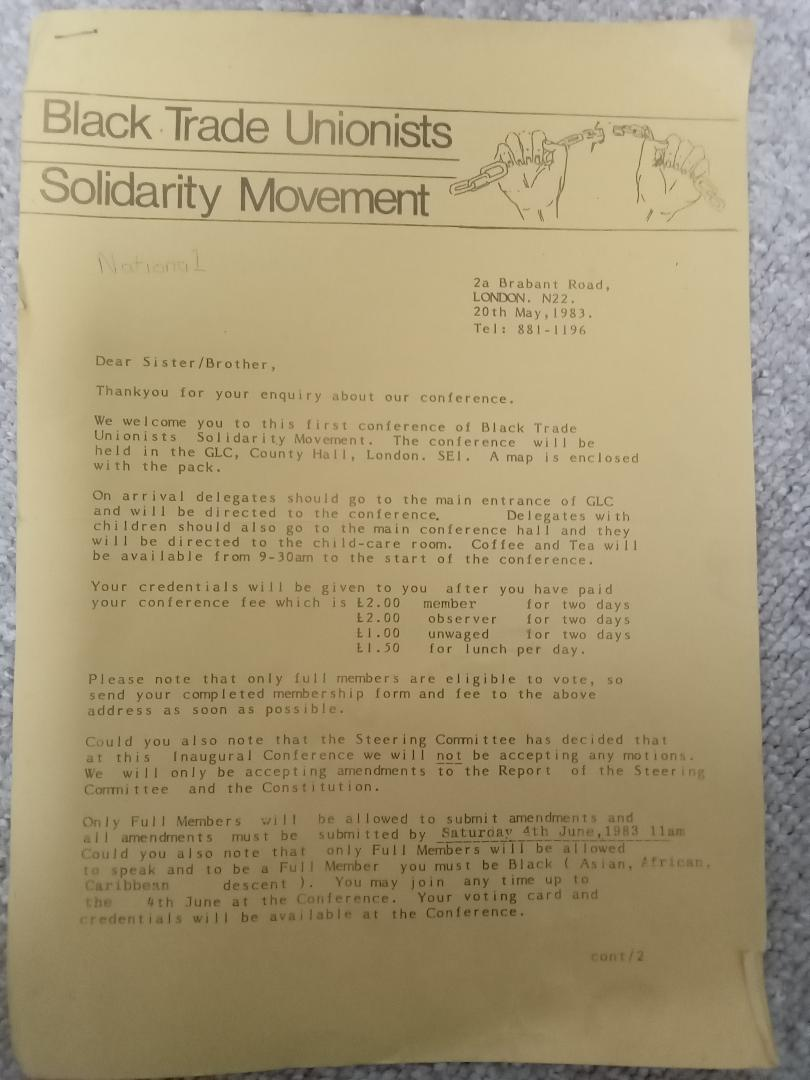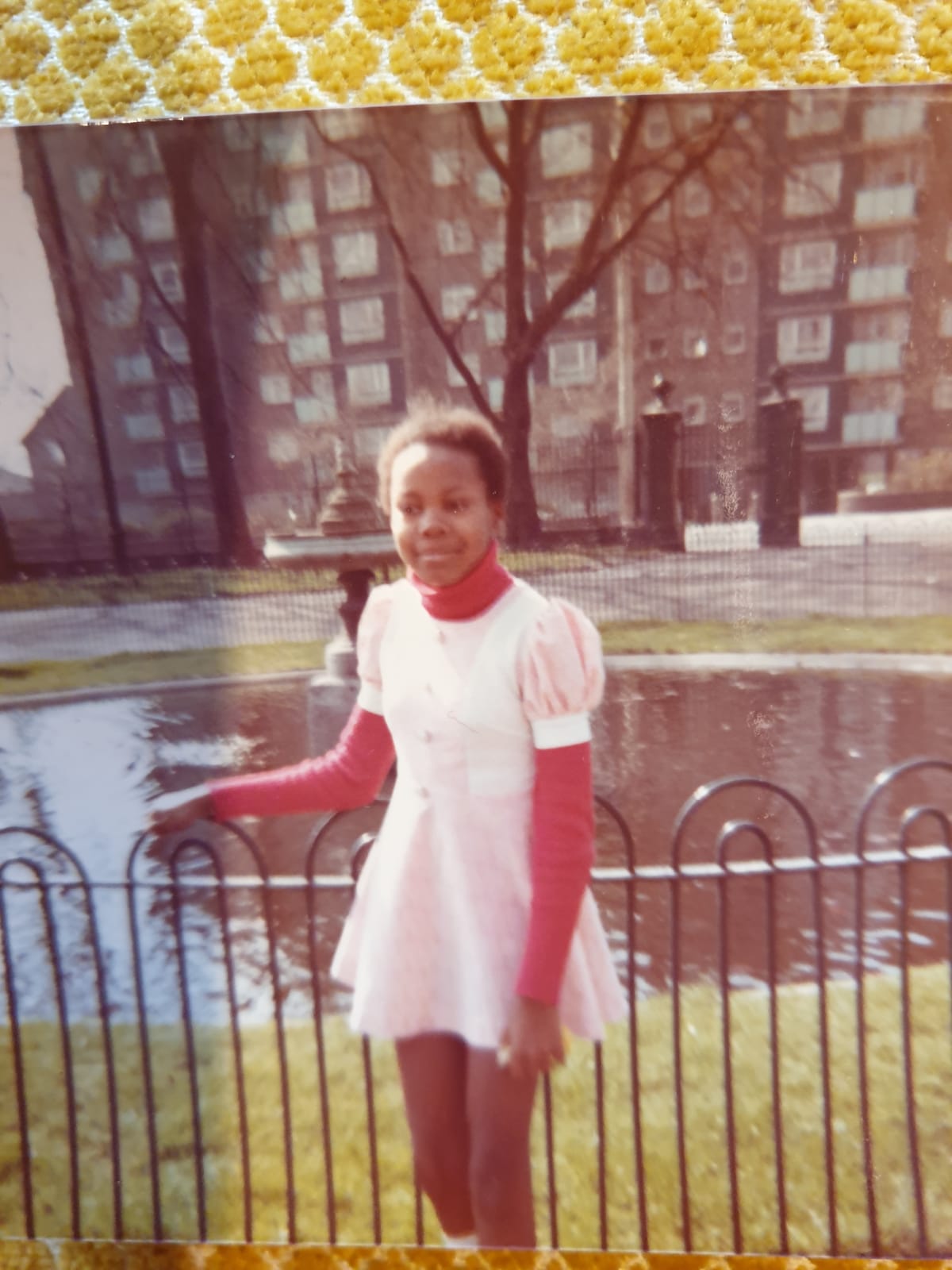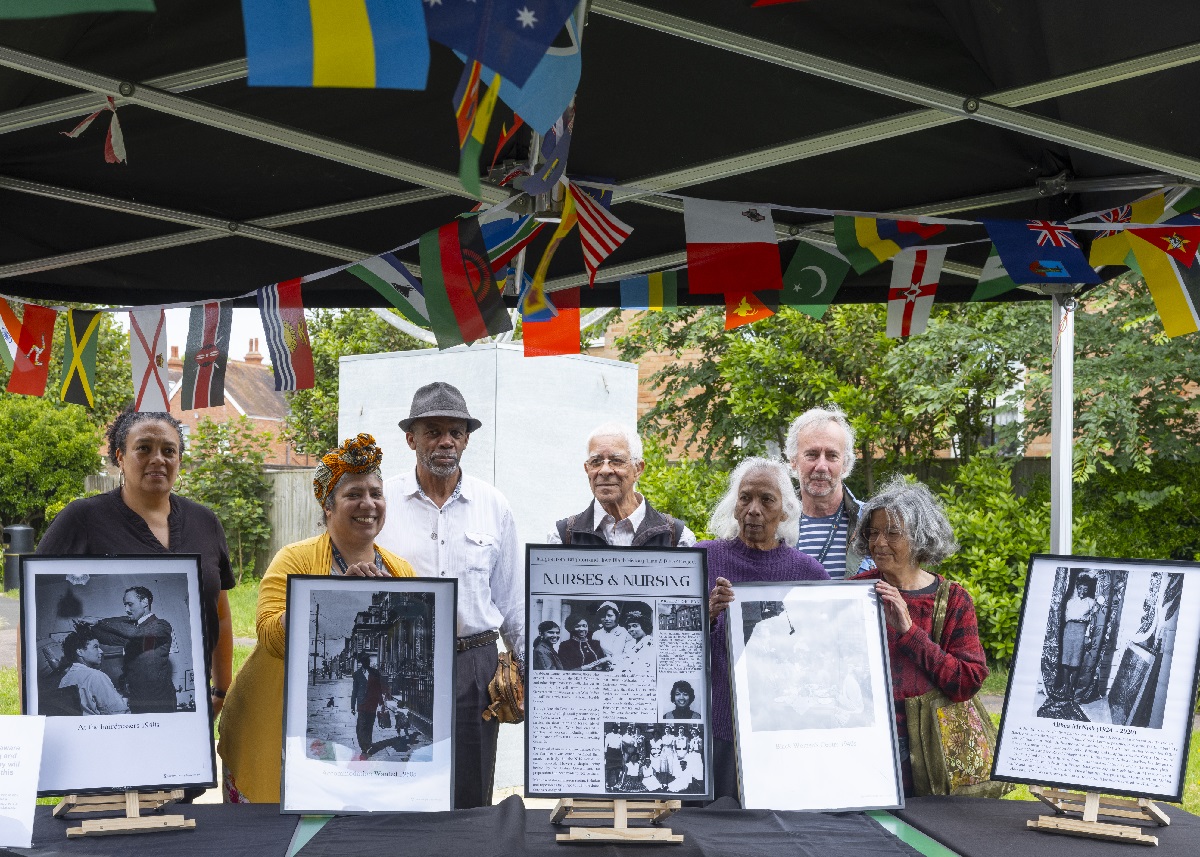Windrush Era and Beyond: Sheila Auguste
The ‘Windrush Era and Beyond’ project shares the powerful stories of Windrush-era migrants and their descendants. Read the transcriptions of the oral histories collected from the project.
‘Multilingual’ Shelia Auguste
I have also remembered that ‘Multilingual’ was written as part of a series of prose and poetry I wrote inspired by workshops with Malika Booker and we all performed our work on stage at the Duke of York Cinema Brighton, unfortunately I can’t locate a specific year as yet but I’m thinking around 2003/4/5.
‘I am a Black Cockney born within the sounds of Bow Bells in Stepney, though my dad would always shiver at the thought of it. He was always exalting me not to drop my H’s And T’s telling me “you’re not one of them you know”. My dad thought the Cockney accent was common and sounded uneducated and at secondary school this inability of mine to drop H’s and T’s led me to be labelled as ‘posh’ – something I never really managed to live down. Although I’d graduated to plain old ‘freaky deeky Sheila’ by the time I was doing my A levels. By this time, I could drop H’s and T’s for England but what was more important was being able to ‘speak like a Jamaican’, despite my parents both being St Lucian. To be part of the ‘in crowd’ or at least not be slated for being a coconut.
St Lucia, a small island where it was rumored that we ate monkey brains and they “spoke a funny French language”, just did not carry the same swing. My best friend was Jamaican. She had all the cache and what little I had come from my association with her. I could never understand a word her mother said – her accent was so strong. She would ask “you want a piece of cake?” and I would stare at her blankly feeling humiliated. How lucky I was having the authentic thing to practice on every day. All I had were my parents wittering on in Creole. Oh, although I didn’t complain about the great marks, I always got in my French orals without even having to try.’
I was born within the sounds of Bow Bells. That makes me a Cockney. Born in East London where a lot of St Lucians and Dominicans ended up in East London and West London. So, there were a lot of St Lucians around when I was growing up but I wasn’t really very interested. I was only interested in Jamaicans.

Black trade unionism
Politics is always important. I think politics and education are sort of my things.
My dad was a trade unionist. And the other thing that I found which was really quite interesting because I’ve been looking around – digging in my own archives. This is a Black trade unionist solidarity movement. The first inaugural meeting in 1983. And the people on it. It says ‘yours in solidarity, Sister Fareeda Mayet* and Brother Bernie Grant*’. This was from the first conference of the Black trade unionist solidarity movement held in the GLC county hall, London SE1. At that time I would have been twenty-one. So, there was lots of politics in my (life). There was the anti-apartheid movement. Trying to establish a Black trade unionist movement.
I did truly believe I’ve ended up in Brighton as a result of living in St Lucia as a child. I think it was the closest I could recreate to being by the sea more going back to St Lucia. I’ve often thought about it although born in London big urban etc. Both my parents are from a tiny, tiny island. My mother is a rural person and I’ve never particularly enjoyed being in the hustle and bustle of urban centres and things like that.

Education
Well so when I was about nine my mother took myself, my brother, who was four years younger than me, and my older sister, who was nine years older than me, we all went to St Lucia.
All my life I was brought up and I always heard ‘back home’. I truly believed that where we were in England was temporary because they always spoke about ‘back home’. In my imagination there was a home somewhere else in St Lucia – ‘back home’. So mum took us ‘back home’ and I believe that the plan had been they had done their bit in England by this time they would have been England for 12 years or so.
And we went and I went to school there. I went to school in St Lucia for a year and a half. And I also think… that it very much influenced how I felt about myself. When I had to come back to England I had been in a school where the majority of children were Black. There were three white girls in the whole school. All the teachers were Black. The headmistress was a white nun… All the banks… Everywhere you went… Everybody was Black. Black policemen etc… And so, I think when I came back to this country and experienced the common everyday racism that you do as a Black British person. I had this picture in my head that of ‘that’s just not true!’. I know that we are not this that or the other. I’ve lived somewhere else. I’ve seen – That was very formative for me…
I think if I hadn’t that, I would have grown up very differently in this country. I think I would have been very undermined by the experiences that I experience in schools in particular…
Before I had left to go to St Lucia the headmaster of my primary school had always spoken wonderfully about me to my dad: “her vocabulary is splendid” he’d say “She’s this. She’s that. She’s this and the other”. I come back to the same school a year and half later but because I had been to school in the Caribbean, they put me in… not the class I should have been in. There were two final year classes – the transition into secondary school. And they put me in 5 rather than 6 where I belonged. And that was purely because I’d come back from the Caribbean. It was shocking.
In the time it took me to do forty sums – arithmetic sums – the kids in the class could only do two or three, four. They don’t know their times tables. It was shocking. The teacher would walk out and leave me reading to the class. That year and half in the Caribbean stood me in such good stead that I didn’t even really catch up to what I had been doing in the Caribbean until I got into my second year of my secondary school. I had that whole head start as they take their education very seriously in the Caribbean. And that was also the story of immigrants and education and how important that was and all of that.

